Reviews
Tony Palmer/Frank Zappa
USA, 1971
Credits
Review by David Carter
Posted on 10 December 2010
Source MGM-HD television broadcast
External links
Related music at Doom & Gloom from the Tomb
Categories Rock Follies
Touring can make you crazy.”
This statement is made early in 200 Motels and serves as the only clue to the film’s meaning - if one can consider this collection of musical performances and disjointed comedy skits to have a singular, concrete meaning. Vincent Canby dubbed the film a “surrealistic documentary” in his 1971 New York Times review, but today we’d recognize the film as closer to a feature-length music video than anything else. We are assured early on that everything that happens in the film was “scored” ahead of time, and therefore intentional; further confusing things, the accompanying album is literally the film’s entire soundtrack without visuals, so it is not entirely clear which Zappa would have considered the primary work of art and which its complement. The inability to ascertain Zappa’s true motives for the film makes it nearly impossible to determine the source of its many problems. Was Zappa unable to translate his musical ideas visually, or does the overreliance on music hamper the cinematic goals of 200 Motels?
The “story” of the film consists of Frank Zappa and the Mothers of Invention performing their album 200 Motels, a work about their experiences on the road. The concert is emceed by a Teutonic gentleman named Dave; he introduces us to Ringo Starr, aka “Larry the Dwarf,” who plays the part of Frank Zappa in the production. (The real Zappa appears only as the guitar player in the Mothers and does not have a speaking role in the film.) In between songs, the members of the Mothers complain about life on the road, look for groupies, and complain about being forced to play Zappa’s “comedy music” instead of something “more commercial” like pop or blues. Other characters occasionally drift through 200 Motels’ living tableau, such as Lonesome Cowboy Burt (played by original Mothers’ drummer Jimmie Carl Black) and a hysterical nun (the Who’s Keith Moon in drag). These two characters are the film’s most enjoyable and irritating, respectively. Black delivers a hilarious country and western song, and the film’s cleverest ironic moment (Black the lonesome cowboy is in fact Native American or, as he liked to put it, “the Indian of the group”). The late Moon’s performance, on the other hand, provides unintentionally ironic black humor in the form of the nun’s repeated musing that she does not want to die of an overdose.
There are two recurrent themes in 200 Motels, the first of which is a critique of the music industry. A Mephistophelian character named Rance Muhammitz appears at times to be forcing the band to perform and appear in the film, bribing them with beer and cheeseburgers, provided they sign a contract in blood to receive them. This is an unsubtle critique, but one that takes on additional relevance with an awareness of the line-up of the Mothers of Invention circa 1971. The two lead singers - and two main characters in the film - are Mark Volman and Howard Kaylan, nicknamed “Flo” and “Eddie” but perhaps better known to pop fans as the Turtles. Volman and Kaylan signed a notoriously unfair record contract that denied them the rights to their biggest hit (“Happy Together”), the name “the Turtles,” and even their own legal names until 1985.
While no two men were better suited to rail against the record industry than Flo and Eddie, most of the bile in the film is Zappa’s, not theirs. The contracts-signed-in-blood angle is dropped by the film’s twenty-minute mark, while Zappa’s issues with “commercial music” - i.e. anything but his own - recur frequently. He targets Grand Funk Railroad and John Mayall and the Bluesbreakers but seems to hold particular ire for “Mellow Yellow” songster Donovan for reasons not fully explained. (These attacks seem hypocritical given that the film’s three main actors are responsible for “Happy Together” and “I Want to Hold Your Hand,” two of the most saccharine, radio-friendly songs in history.)
200 Motels’ other main theme is the idea that Zappa is a manipulative puppet master who spies on his band to get the ideas for his songs. As the Mothers do their aforementioned complaining and groupie-hunting, the bewigged Starr is seen hiding in the background with a tape recorder and then later turning the dialogue into songs. It’s interesting to note that the band member who receives the most attention as a character, bassist Jeff Simmons, does not actually appear in the film, having left the group before filming began in pursuit of the oft-mentioned “something more commercial.” (Jeff’s departure is mentioned through the spoken dialogue briefly, but it is never mentioned that “Jeff Simmons” is played by Ringo Starr’s limo driver, Martin Lickert, who even pantomimes playing the bass during the otherwise-live music numbers.) In any case, Zappa seems not to have taken Simmons’ departure well, as he becomes the brunt of many of the film’s anti-drug attacks. The character of Simmons is shown to be an unrepentant junkie, willing to take even unknown substances from strangers. The film visually represents Simmons’ “bad trips” twice, once as a cartoon by _ Down and Dirty Duck_ director Charles Swenson, and later through psychedelic special effects and ambient sounds.
Special effects, superimposition and rapid edits are used frequently throughout 200 Motels, but rarely in a manner that would imbue the on-screen events with any greater meaning. The credited director, Tony Palmer - who, before and since 200 Motels, has mostly worked on documentary concert pieces on classical and operatic artists - reportedly quit during shooting, leaving Zappa alone at the helm, and requested to have his name removed from the finished film. Zappa later went on record stating that his original vision for the film was a work two times longer, a fact that is frankly unimaginable given that the film feels overlong as it is. There is no narrative arc in the film, so the only clue the audience is given about how the film will end comes in the form of the master of ceremonies simply announcing that the next song (which goes, in part, “Lord have mercy on this film”) will be the finale.
When analyzing a musician’s foray into film, the question of self-indulgence tends to arise. Even though the real Frank Zappa only appears on screen for at most five minutes, I would argue that 200 Motels is very much a self-indulgent work, perhaps even more so than the other films we’re analyzing in this feature. The fact that Zappa denies the audience his image is an act of supreme hubris; by not appearing in the film, his absence becomes the most pressing question in the viewer’s mind during every scene. In this way, he was able to put a greater focus on himself than he would have had he appeared in every frame. Furthermore, the inclusion of so many jabs at Zappa’s music (attacks that he himself wrote, mind you) by other characters seems to be an obvious ploy for sympathy, setting himself up as an underdog or perhaps fishing for a compliment. Every time a character dismisses his work as “comedy music,” it is as if Zappa himself has just popped into the frame to ask of the audience, “You don’t think my music is just ‘comedy music’ do you?” To take a more cynical view, these swipes at himself are inadvertently fuel for his detractors, as he deftly and frequently lists every possible angle from which to criticize his music and his own personality.
200 Motels is undeniably the work of a man who believes in his own genius. So unwavering is Zappa’s belief in himself that he fails to notice when things veer terribly off-course in scenes with characters obviously reading from the scripts in their hands. Nor does he seem too concerned with frequent shots of the Royal Philharmonic Orchestra looking alternately bored with or disgusted by the events around them. 200 Motels is a prime example of a “rock folly” in the sense that it seems unimaginable that anyone outside of Zappa’s core fanbase would enjoy the film as anything other than a target for derision. As a musical document of Zappa and the Mothers’ performances, it is solid enough. But the problem with 200 Motels lies in the fact that it is trying very hard to be something more than that, failing so spectacularly in the process that it is unclear what that something might have been.
More Rock Follies
-

Head
1968 -

Sympathy for the Devil
1968 -

Alice’s Restaurant
1969 -
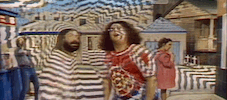
200 Motels
1971 -

Journey Through the Past
1972 -
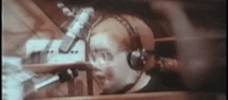
Human Highway
1982 -
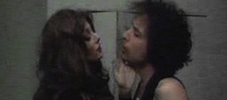
Renaldo and Clara
1978 -
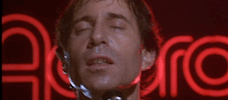
One Trick Pony
1980 -
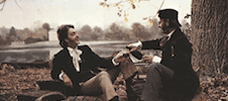
Give My Regards to Broad Street
1984 -

The Man Who Fell to Earth
1976 -

True Stories
1986
We don’t do comments anymore, but you may contact us here or find us on Twitter or Facebook.



